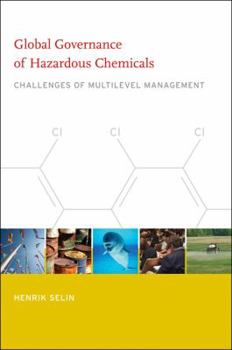Global Governance of Hazardous Chemicals: Challenges of Multilevel Management
(Part of the Politics, Science, and the Environment Series)
Select Format
Select Condition 
Book Overview
An analysis of the regime for the management of hazardous chemicals, highlighting the insights it provides for effective multilevel governance in other areas.
The challenges posed by managing hazardous chemicals cross boundaries, jurisdictions, and constituencies. Since the 1960s, a chemicals regime--a multitude of formally independent but functionally related treaties and programs--has been in continuous development, as states and organizations collaborate at different governance levels to mitigate the health and environmental problems caused by hazardous chemicals. In this book, Henrik Selin analyzes the development, implementation, and future of the chemicals regime, a critical but understudied area of global governance, and proposes that the issues raised have significant implications for effective multilevel governance in many other areas. Selin focuses his analysis on three themes: coalition building in support of policy change; the diffusion of regime components across policy venues; and the influence of institutional linkages on the design and effectiveness of multilevel governance efforts. He provides in-depth empirical studies of the four multilateral treaties that form the core of the chemicals regime: the Basel Convention (1989), which regulates the transboundary movement and disposal of hazardous wastes; the Rotterdam Convention (1998), which governs the international trade in chemicals; the CLRTAP POPs Protocol (1998), designed to reduce the release and transnational transport of emissions of persistent organic pollutants; and the Stockholm Convention (2001), which targets the production, use, trade, and disposal of persistent organic pollutants. The interactions of participants and institutions within and across different levels of governance have implications for policy making and management that are not yet fully understood. Selin's analysis of these linkages in the chemicals regime offers valuable theoretical and policy-relevant insights into the growing institutional density in global governance.
Related Subjects
Engineering Science Science & Math Science & Scientists Science & Technology Technology




